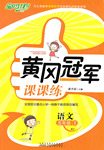题目内容
When I told my father that I was moving to Des Moines, Iowa, he told me about the only time he had been there. It was in the 1930s, when he was an editor of the literary magazine of Southern Methodist University(SMU)in Dallas, Texas. He also worked as a professor at SMU, and there was a girl student in his class who suffered from a serious back disease. She couldn’t afford the operation because her family was poor.
Her mother ran a boardinghouse in Galveston, a seaside town near Houston, Texas. She was cleaning out the attic(阁楼)one day when she came across an old dusty manuscript(手稿). On its top page were the words, “By O. Henry”. It was a nice story, and she sent it to her daughter at SMU, who showed it to my father. My father had never read the story before, but it sounded like O. Henry, and he knew that O. Henry had once lived in Houston. So it was possible that the famous author had gone to the beach and stayed in the Galveston boardinghouse, and had written the story there and left the manuscript behind by accident. My father visited an O. Henry expert at Columbia University in New York, who authenticated the story as O. Henry’s.
My father then set out to sell it. Eventually, he found himself in Des Moines, meeting with Gardner Cowles, a top editor at the Des Moines Register. Cowles loves the story and bought it on the spot. My father took the money to the girl. It was just enough for her to have the operation she so desperately needed.
My father never told me what the O. Henry story was about. But I doubt that it could have been better than his own story.
1.Who found the O. Henry’s manuscript?
A. The author. B. The author’s father.
C. The girl. D.The girl’s mother
2.Which of the following might explain the fact that the manuscript was found in the attic?
A. O. Henry once worked in Houston.
B. O. Henry once stayed in Galveston.
C. O. Henry once moved to Des Moines.
D. O. Henry once taught at SMU.
3. The underlined word “authenticated” in Paragraph 2 probably means __________.
A. named B. treated
C. proved D. described
4. According to the text, why did the author’s father go to Des Moines?
A. To meet the author himself.
B. To sell the O. Henry story.
C. To talk with the O. Henry expert.
D. To give money to the girl.
1.D
2.B
3.C
4.B
【解析】
试题分析:文章大意:本文主要介绍了作者一家搬到爱荷华州得梅因市时,父亲做教授时班里的一个女孩因家穷而无力支付手术费,她妈妈在整理阁楼偶然发现一个手稿。父亲巧妙运用手稿稿费帮小女孩治病的回忆。没想到那手稿是欧·亨利的短篇小说,作者认为父亲的这次助人比该短篇小说的本身还精彩。
1. 细节题。根据文章第二段的Her mother ran a boardinghouse in Galveston, a seaside town near Houston, Texas. She was cleaning out the attic(阁楼)one day when she came across an old dusty manuscript(手稿).可知she指的是前句的mother的,故D正确。
2. 推断题。根据文章第二段的My father had never read the story before, but it sounded like O. Henry, and he knew that O. Henry had once lived in Houston. n可知B正确。
3. 细节题。根据第二段的My father visited an O. Henry expert at Columbia University in New York, who authenticated the story as O. Henry’s.可知authenticated 是authenticate的过去分词,具有验证,证实的意思,只有prove含有这个意思,故C正确。
4.
考点:考查传记类短文阅读

 黄冈冠军课课练系列答案
黄冈冠军课课练系列答案短文改错(共10小题;每小题1分,满分10分)
下面短文中有10处语言错误。请在有错误的地方增加、删除或修改某个单词。
增加:在缺词处加一个漏字符号(∧),并在该漏字符号下写上该加的词。
删除:把多余的词用斜线( \ )划掉。
修改:在错的词下划一横线,并在该横线下写上修改后的词。
注意:1、每处错误及其修改均仅限一词;
2、只允许修改10处,多者(从第11处起)不计分。
例如: It was very nice to get your invitation to spend ∧ weekend with you. Luckily the
am in Friday evening. on |
I feel it is pity that you didn’t want to take part in the speech contest. In my view, the speech contest can benefit from you in different ways. Firstly, it makes you look for more informations about your favorite scientists on the Internet or in the library, and learning more about them. Secondly, it is a challenge to prepare for a speech contest. You not only have to write a good article, and also have to perform them properly. What’s more, after the contest, you can find yourself with some newly good friends, or even a prize. I suggest you consider participating in the contest, that will really do good to you. If you change your mind, please let me know as sooner as possible.
 I was completely free then, so I’ll to say “yes”. I’ll arrive in Bristol at around 8 p.m.
I was completely free then, so I’ll to say “yes”. I’ll arrive in Bristol at around 8 p.m.